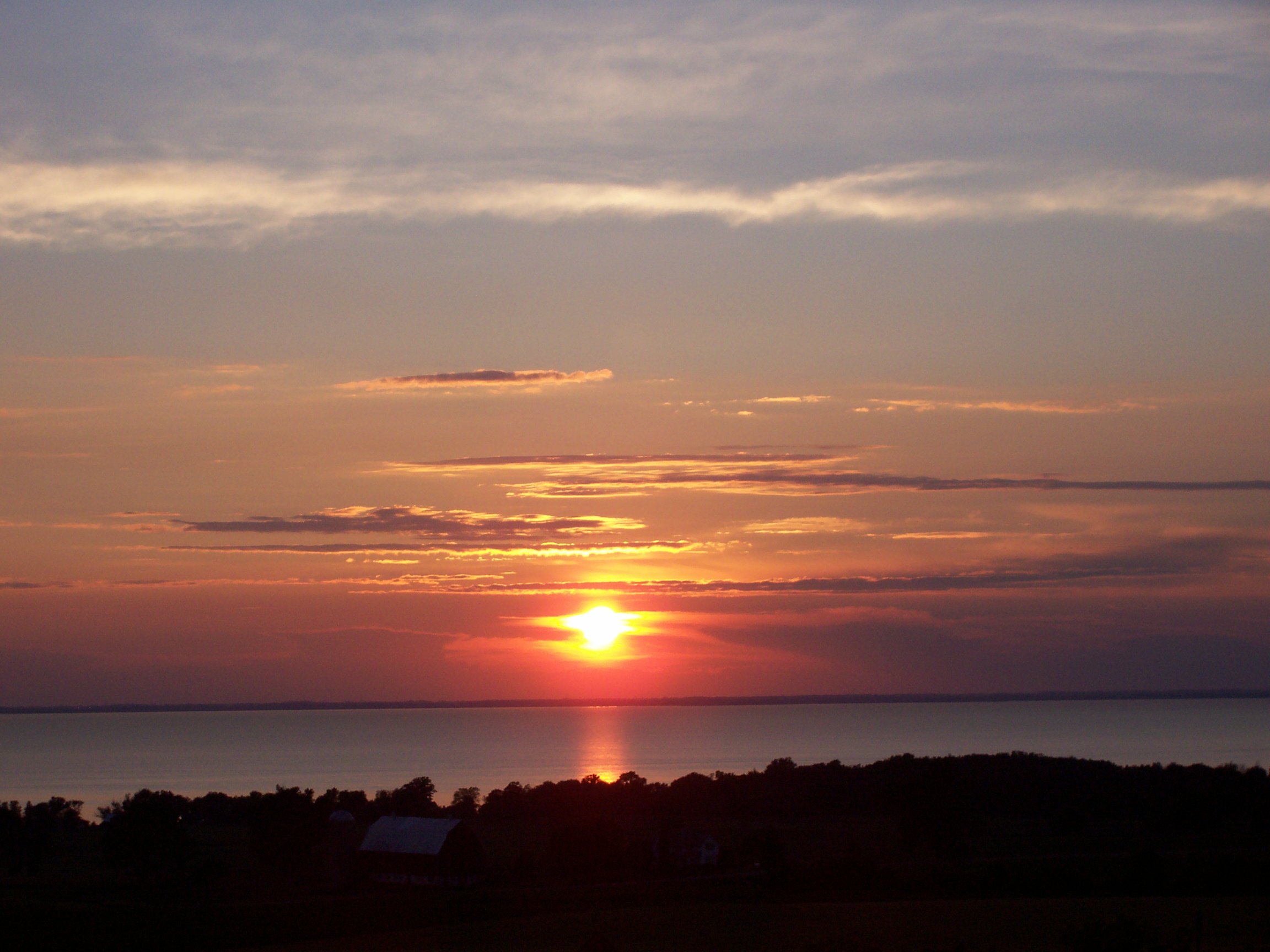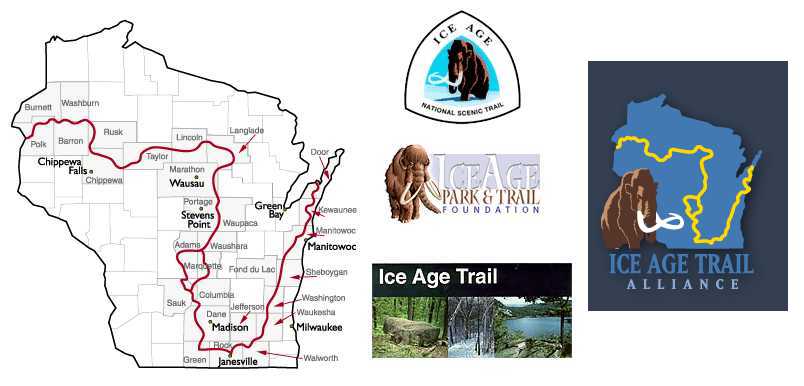No appeal to Skunk Hollow Mine Mine denial
On December 22, 2023, the Green Lake Association, Green Lake Conservancy, and Green Lake Sanitary District won an appeal with the Board of Adjustment denying the proposed Skunk Hollow Mine. Site-specific studies showed that a proposed non-metallic mine in this location would be detrimental to nearby water resources, including Powell Spring and Mitchell Glen, which form the headwaters of Green Lake's two primary trout streams. The applicants, Kopplin and Kinas, had until February 20 to file an appeal. No appeal was filed, which means this denial for the conditional use permit of Skunk Hollow Mine stands.
The GLA, GLC, and GLSD have incurred an outstanding balance of over $48,000 in legal fees and site-specific studies for this appeal. Please consider making a donation to help underwrite the cost of this appeal. Your gift equally benefits all three organizations, and 100% of your contribution will go toward reimbursing these unanticipated costs to defend our local water resources.
Skunk Hollow Mine Appeal
|
||||||||||
|
Protecting Water: Factory Farms, PCBs, and other Threats

The Fox Valley Group of Sierra Club is concerned about growing numbers of factory farms caused by the large number of factory farms, or Confined Animal Feeding Operations in northeastern Wisconsin. Collectively, Gannett media recently reported that Wisconsin’s CAFO’s produce 47 million gallons of manure every day.
This is an acute problem in our part of the state, as karst geology, characterized by sinkholes and fissures, allow pollution to travel long distances quickly. We must protect Lake Michigan, Green Bay, Lake Winnebago, the Fox River, sensitive animals and plants, our tourism industry, and our drinking water from contamination caused by growing numbers of factory farms in our area.
Historically, our group played a major role in cleaning up PCB’s in the Fox River. The Fox River, running from Lake Winnebago to Lake Michigan, is polluted with toxic polychlorinated biphenyls (PCB) contamination in the river sediment. Cleanup proposals range from covering the river bottom with a "cap" to hide the pollution, to actually removing the PCB contamination. The Sierra Club, and other environmental groups, are in favor of removing the contamination (through dredging) and having the polluters (the paper companies) pick up the costs.
For many years the issue of how and what to cleanup was debated. The polluters wanted the least expensive solutions. The citizens wanted better solutions. We had already been deprived of many of the values of our beautiful river due to the contamination. It was only fair to have the polluters restore it as quickly as possible. Furthermore, PCB contamination was leaving the river and flowing into Lake Michigan where it would be impossible to remove. Eventually a decision was reached. It was less thorough than Sierra Club or other environmental groups wanted. But it would get a reasonable job done. The river would be dredged, removing contaminated sediments. The river would still be contaminated, but at a reduced level. The dredgings would be buried in landfills. Science suggests that landfills are a safe way to deal with the contaminated sediments. But Sierra Club argues that vitrification is a better way to deal with the contaminatated dredgings. Vitrification burns and melts materials into safe glass at high temperatures. While expensive, the costs of trucking deposits to landfills is not much cheaper.
Climate Change
The Sierra Club has made reducing the threat of climate change our top priority. Climate change is caused by excessive greenhouse gas emissions (including carbon dioxide) that come from burning fossil fuels, such as coal, oil, and natural gas. These gases cause heat to be trapped into the atmosphere, changing precipitation regimes and increasing the overall temperature of the planet to unhealthy levels.
The effects of climate change will wreak havoc on Wisconsin's environment and our economy, from our fields to our forests to our coldwater fisheries. Learn more about the latest research on the local impacts of climate change on the Wisconsin Initiative on Climate Change Impacts webpage. Scientists estimate that the safe maximum level of atmospheric carbon dioxide is 350 parts per million. As of 2014, we are at 396 PPM. Concentrations of carbon dioxide (CO2), methane, and nitrous oxide are at their highest levels in 800,000 years, and each of the last 3 decades has been warmer than any preceding decade since 1850. The Greenland and Antarctic ice sheets have been losing mass over past 2 decades; sea level is rising; and oceans are acidifying.
Members of the Fox Valley Group are concerned about impacts of climate change in our area. Several members have attended national climate marches in recent years.
We support expanding renewable energy such as solar and wind, and energy efficiency to reduce our dangerous dependence on coal, gas, and other fossil fuels.
We support expanding transit and urge the legislature to allow the creation of a Fox Valley Regional Transit Authority to raise stable, dedicated local funding for clean transportation in our area. We oppose wasteful highway spending that makes climate change worse and chains us to a future of oil dependence.
Frac Sand Mining
 The Fox Valley Group is concerned about frac sand mining in our area. Wisconsin’s high-quality silica sand, called frac sand, is being used to fuel a natural gas fracking rush in other parts of the country. Demand for frac sand has threatened habitat in many parts of Wisconsin and led to a proliferation of sand mines in recent years.
The Fox Valley Group is concerned about frac sand mining in our area. Wisconsin’s high-quality silica sand, called frac sand, is being used to fuel a natural gas fracking rush in other parts of the country. Demand for frac sand has threatened habitat in many parts of Wisconsin and led to a proliferation of sand mines in recent years.
Since July 2012, the local citizens of Preserve Waupaca County, including Fox Valley Group Sierra Club member Kelly Ramstack, have been raising concerns about A.F. Gelhar’s proposed sand mine in the Town of Union. The project entails purchasing 160 acres of land for an operation that will operate for 30-100 years and require a processing plant and at least one high capacity well. Not only will this project increase silica levels, increase traffic and reduce property values, it also threatens habitat. Its proposed location is adjacent to Tellock’s Hill Woods State Natural Area, and wastewater would flow into a tributary of the Little Wolf River. PWC has questioned Gelhar’s claims about this project’s potential to create jobs, as it would result in the closure of Dennison’s lumber company. They have also questioned that the sand would be used by Waupaca Foundry, since they have found a way to reuse sand.
PWC’s efforts initially paid off in 2012 when their town board and planning commission voted down the sand mining permit (based on the town’s comprehensive plan prohibiting sand mining within 2,000 feet of residences). Unfortunately, on June 6, 2013, the Waupaca County Zoning Committee voted to grant a conditional use permit (CUP) for the sand mine, and the group has been embroiled in a costly legal battle to block the mine since then. That decision was reinforced May 16, 2014 when the Waupaca County Board of Adjustment denied PWC’s appeal challenging the Zoning Committee’s decision. Despite these setbacks, PWC now plans to go to Circuit Court to challenge the proposed sand mine on the basis that it violates Waupaca County’s Comprehensive Plan (potentially testing our smart growth law). In 2013, PWC received the Moldenhauer Award for their efforts, and in June 2014 the Sierra Club – John Muir Chapter provided a $1,000 grant to PWC to support their ongoing legal and grassroots efforts. We hope that this support helps, and we wish PWC success against this formidable opponent in the future!
Invasive Species
Many of our members work every year to clear public parks, natural areas and other local lands of invasive plants like garlic mustard and buckthorn. Please check upcoming outings to see how you can help us fight this problem.
Ice Age Trail
 The Fox Valley Sierra Group helps with trail maintenance and construction service projects throughout the summer months. Each October members of our group participate in the annual Ice Age Trail Hike-A-Thon.
The Fox Valley Sierra Group helps with trail maintenance and construction service projects throughout the summer months. Each October members of our group participate in the annual Ice Age Trail Hike-A-Thon.
For more information you can contact Monny Hjerstedt, phone 920-558-0013 , email mhjerstedt17@gmail.com. Or Dale and Penny Schaber who have hiked the entire trail! Dale Schaber, phone 920-739-6041, email: dschaber@athenet.net. For more information, see the website for the Ice Age Trail Alliance: http://www.iceagetrail.org

